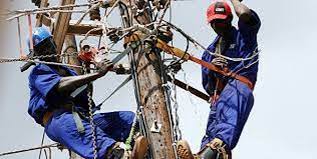The Crippling Power Crisis in Liberia: A Nation Plunged into Darkness
Liberia, a nation still recovering from years of civil conflict and grappling with economic challenges, has been plunged into a severe energy crisis following a drastic reduction in power supply from its primary electricity provider, the Compagnie Ivoirienne d’Électricité (CIE) of neighboring Ivory Coast. The crisis, triggered by an 85% cut in electricity imports, has left the Liberian capital, Monrovia, and its surrounding areas reeling under the weight of extended blackouts, disrupting daily life and threatening the country’s fragile economic recovery. The suddenness and severity of the power shortage have exposed the precariousness of Liberia’s energy dependence on its neighbor and highlighted the urgent need for domestic solutions to ensure energy security.
The Liberia Electricity Corporation (LEC), the national power utility, announced the devastating news on February 5, 2025, informing the public of the CIE’s emergency request to drastically reduce electricity exports. Citing production challenges and critical maintenance activities within its own power grid, the CIE slashed its electricity supply to Liberia from 50 megawatts (MW) to a mere 7.5 MW, leaving the West African nation grappling with a massive energy deficit. This abrupt reduction has crippled Liberia’s power grid, pushing the country into an energy crisis far exceeding the usual load-shedding schedule. Businesses are struggling to operate, essential services are disrupted, and the daily lives of ordinary Liberians have been thrown into disarray.
While the LEC has scrambled to mitigate the impact of the power cuts by activating its thermal power plants, these efforts have proven woefully inadequate to bridge the enormous energy gap. The situation is further exacerbated by declining water levels at the Mt. Coffee Hydropower Plant, a crucial domestic source of electricity, which has hampered its generating capacity. The confluence of these factors – the external shock from the CIE’s supply reduction and the internal limitations of domestic power generation – has created a perfect storm, leaving Liberia teetering on the brink of a full-blown energy collapse.
The LEC, while acknowledging the profound inconvenience caused by the pervasive power outages, has appealed to the public for patience and cooperation, assuring them that it is in constant communication with the CIE and will provide updates as the situation evolves. However, the absence of a concrete timeline for the restoration of normal power supply underscores the uncertainty surrounding the crisis. The LEC’s ability to address the power shortage hinges entirely on the CIE’s ability to resolve its internal production challenges, leaving Liberia in a vulnerable and dependent position. This dependence underscores the inherent risks of relying heavily on external sources for critical infrastructure like electricity.
The impact of this power crisis extends far beyond the inconvenience of daily blackouts. It poses a significant threat to Liberia’s nascent economic recovery, hindering businesses, disrupting essential services, and dampening investor confidence. The prolonged power outages are forcing businesses to curtail operations, impacting productivity and threatening livelihoods. Hospitals and other critical facilities are struggling to function, putting lives at risk. The crisis also casts a shadow over Liberia’s efforts to attract foreign investment and stimulate economic growth, as reliable access to electricity is a fundamental requirement for any sustainable development.
The current energy crisis in Liberia serves as a stark reminder of the critical importance of energy security. It exposes the vulnerabilities inherent in relying heavily on external sources for essential services and underscores the urgent need for Liberia to invest in diversifying its energy mix and strengthening its domestic power generation capacity. The crisis presents an opportunity for Liberia to re-evaluate its energy strategy, prioritize investments in renewable energy sources, and build a more resilient and sustainable power infrastructure that can withstand external shocks and ensure a brighter future for its citizens. The path forward requires a concerted effort from the government, the private sector, and international partners to address the immediate challenges and lay the foundation for a more secure and sustainable energy future for Liberia. The nation’s ability to overcome this crisis and build a more resilient energy sector will be crucial for its long-term development and prosperity.


